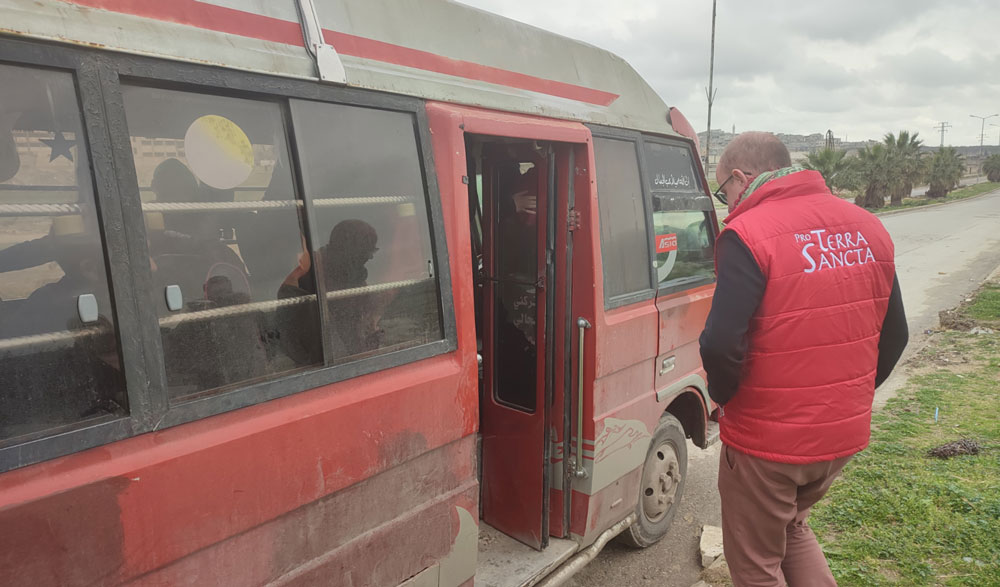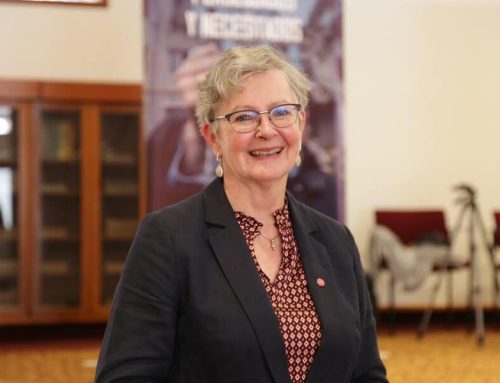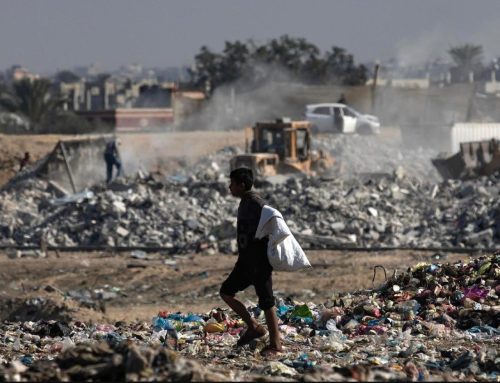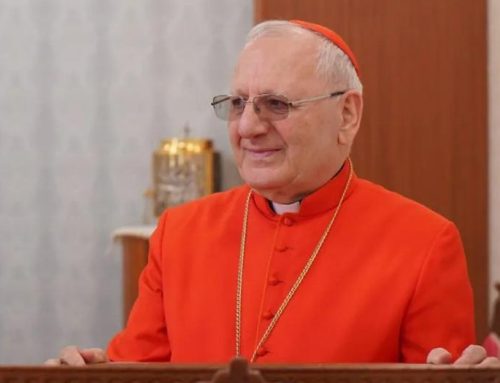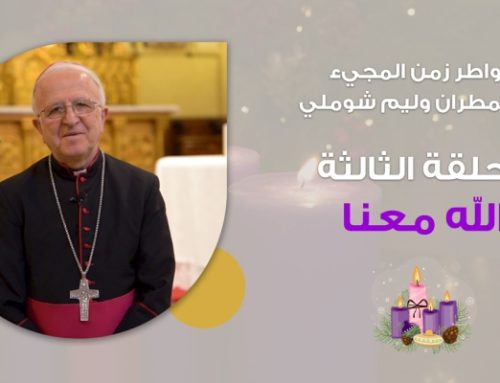From a distance it would look like just another bus. Old and broken down. In Italy it would probably be scrapped immediately. It almost blends in among the cars parked alongside the rubble. Only the red bodywork stands out in the depressed outskirts of Aleppo.
As you get closer, you begin to hear the voices of children tearing through the melancholy monotony of a destroyed city that has buried the future under buildings, among the rubble. Old ones, caused by the war, and new ones caused by the earthquake.
Dr. Binan Kayyali, a young and competent psychologist who coordinates the centers of “A Name and a Future,” accompanies me on the bus. I climb those narrow steps and already hear counting in Arabic. “Five times six? Thirty! Five times seven? Thirty-five!”
Once again. “Bravo good job! And now who wants to read a story?” They all stand up, with their hands raised. There are about 20 of them in all. “I want to read the story from last time again!” “Yes!!! Me too, me too!” They are the children of eastern Aleppo. They are seven, eight, ten years old. They have one thing in common: they work all day and have never been to school. They live in a country devoid of opportunities. Their early years were spent amidst the violence of the Islamic State and bombs from the Russians. Today they live in abject poverty. Ahmed is eight years old and a shoemaker, helping his family who on a salary of 20€ a month have not been able to put a piece of meat on the table for years. “On weekends I come here, have fun and learn something-I hope when I grow up to do a good job to be more useful to my family.” He has fun, he hopes. Like all these kids who have started attending this strange traveling school.
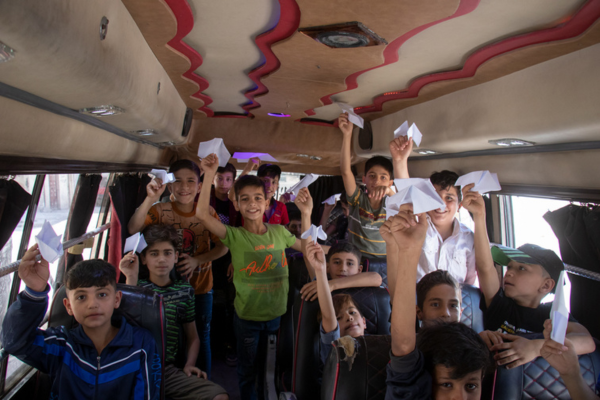
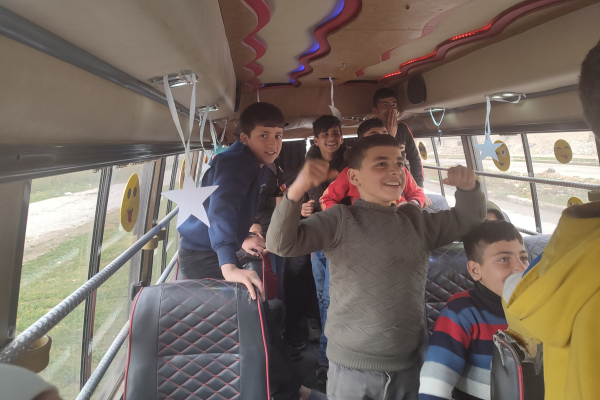
No school, no future
The bus goes around the neighborhoods on weekends, when they are not working, and picks them up, one by one. A boy approaches and shows me all proud a notebook with multiplications in it, “Look, I learned how to do multiplication tables!” A young educator caresses him and gives him a small candy as a prize.
Binan confides to me that this boy had his home badly damaged by the earthquake and suffered psychological trauma during the war. “Since he started coming with us, he has started to smile. And when he sees the bus coming in the distance, he shouts to everyone: the bus of life is coming!” That life that an unjust war and an even more unjust earthquake have taken away from so many of his peers.
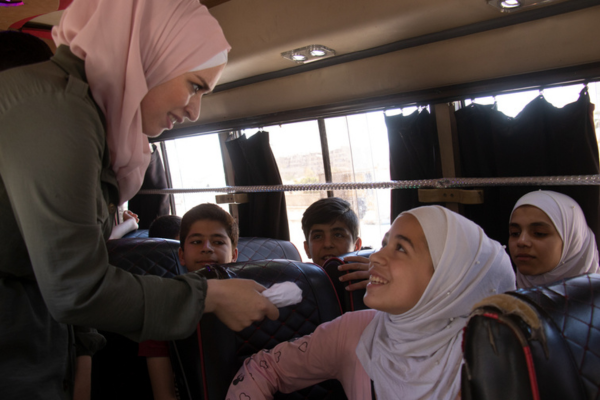
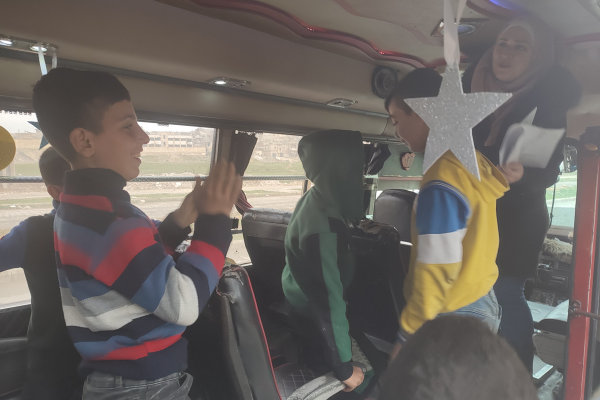
In Aleppo, it is difficult to have a future. Especially for them, forced to help their parents from an early age. No school, no prospects. “Of course in this project we also try to help parents find better paying jobs so they can send their children to school,” Binan tells me. It is difficult. And this is just a first, very small step. It works, though, and it’s contagious. More kids are trying to get on board. And some are already thinking big: “I want to build buildings!” “I dream of flying airplanes!” “How I would love to be a doctor!” Their enthusiasm makes for tenderness. In half a day, they did everything with the educators: they read stories, took quizzes to brush up on some geography, sang to brush up on their multiplication tables In the end, getting home is a little difficult. “I’m sorry because I know it will have to be another week before I come back here,” Joussef tells Binan, hugging her. The bus sets off again, this time for the depot. And watching it drive away, I think that on those old seats you can really start over, and hope. Imagine a different future, and do it together with others. In time, maybe even overcome fears and trauma.
It is the Eastern Aleppo bus. The bus of life..
Help us increasing the activities of Aleppo’s bus!
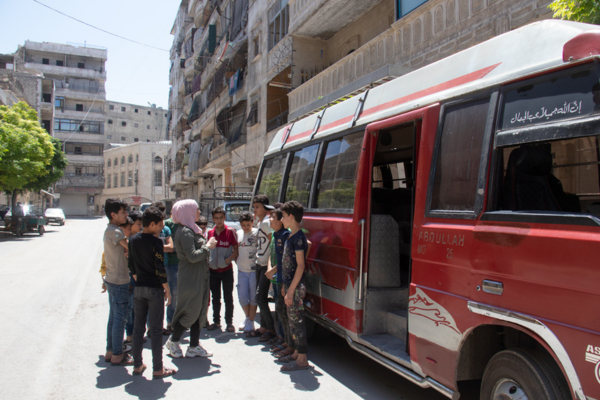
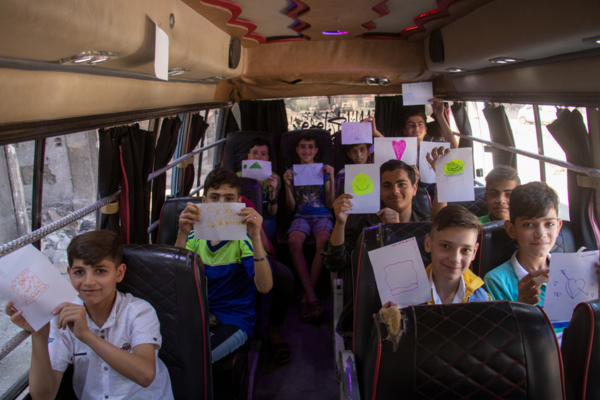
By Veronica Brocca | proterrasancta.org

